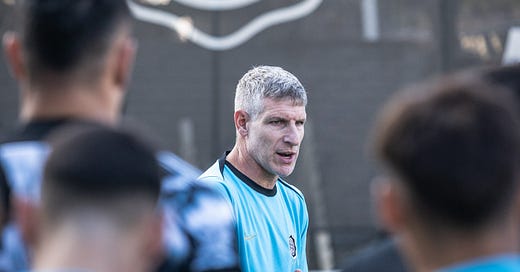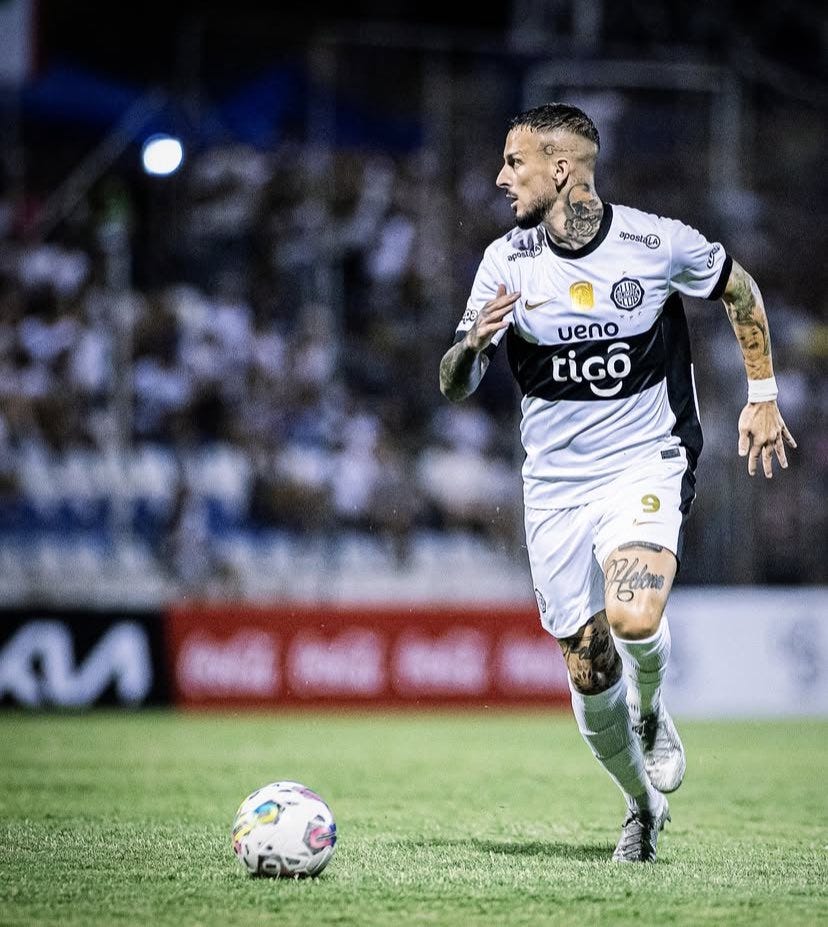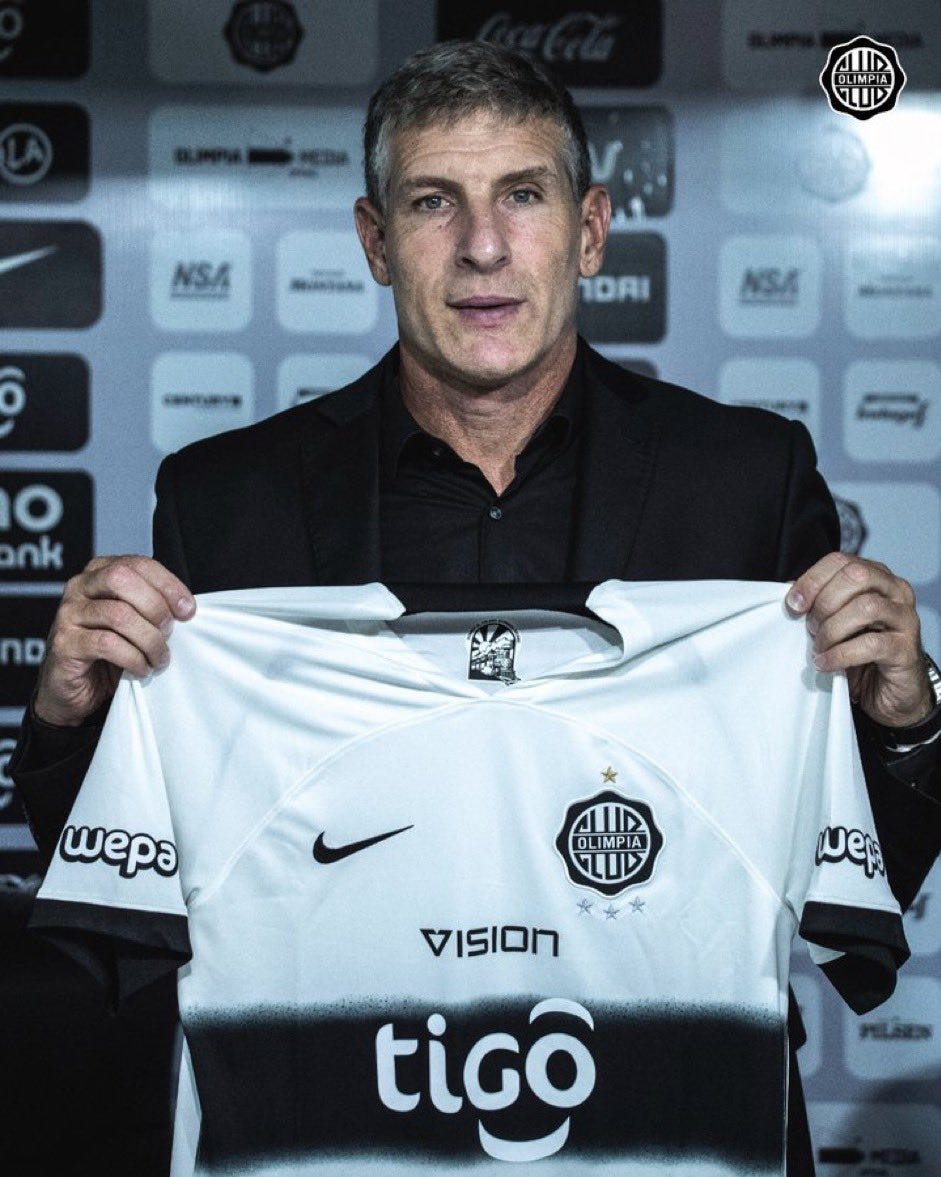What went wrong for Martín Palermo and Olimpia?
Defending champions Olimpia sacked Martín Palermo just 12 league games into the season. Why?
In November Martín Palermo danced to cumbia in the changing room, the Boca Juniors legend had won everything as a player but this was his first managerial success. Olimpia had surprised pundits to take the 2024 Clausura at a relative canter, finishing nine points ahead of runners up Guaraní. It was a rare moment in Paraguayan football where a coach was given a chance, he hadn’t convinced in the Apertura but was still trusted to continue into the second half of the year.
But now Palermo is out, just halfway through the new season and far adrift of resurgent leaders Libertad. The winless start to the Copa Libertadores sealed the 51 year old’s fate. How did it all go wrong so quickly and is it really the Argentinian to blame or do problems run deeper for Paraguay’s most successful club?
Let’s dive in…
The Manuel Capasso trade off
The 2024 Clausura win was built on the foundation of a strong defence, El Decano conceded just 13 goals in the 22-game season and more importantly only shipped two or more in a pair of matches (0-2 vs Nacional and 4-3 vs Luqueño). Goalkeeper Gastón Olveira was voted Player of the Season while loanee Manuel Capasso had a huge impact in central defence. At the beginning of the year Olimpia had the option to make the Argentinian’s move from Vasco Da Gama permanent for $1m. At the start of the season Olimpia’s honorary president said it was impossible to meet the financial demands, but his absence has proved costly.
As an alternative they went out and brought in Roberto Rojas, Alejandro Maciel and Abel Paredes. Rojas has mostly been used at fullback, while both Maciel and Paredes have been well short of the level required. A later incorporation of Lisandro López has steadied the backline somewhat but at the halfway stage of the Apertura they’ve already conceded more goals (14) than in the championship winning season.
The defensive deficiencies have been exacerbated by the long-term injury to Olveira which made Palermo’s side far too easy to score past.
Overreliance on the outside
Unfortunately for the Paraguayans the mishaps in the market spread further than the backline. Several high-profile signings were made further up the pitch, none more so than Dario Benedetto. The former Boca and Marseille forward arrived with much fanfare but at the time of writing has yet to score a goal, in fact other than a fantastic 30 minutes in the clásico his performances have been pitiful.
While other signings like Javier Domínguez and Iván Leguizamón have fared a little better, there is a feeling that Palermo and his staff were too quick to look outside. It is especially jarring for fans as it came at a time when the stock of Paraguayan football is so high with both the U20s and U17s have qualified for the World Cup.
Olimpia have handed just 65 minutes to players 20 or under in the league so far, in comparison Libertad have racked up 458 minutes while Cerro Porteño has handed 1,622 minutes to their cantera.
That’s (not) entertainment
Even when Olimpia won the title, there was a feeling like the team was built more on grit than glamour. Eight of their 12 wins were by a single goal, often coming in the second half. The topscorer was Rodney Redes with seven strikes, but after the former Austin FC man it was the aforementioned Capasso who made the most impact (Four goals) and usually from set pieces.
In fact, Olimpia had the lowest points total in a 22-game championship since Libertad in 2016. The hope for many fans was that the Copa Libertadores qualification and Palermo’s reputation as a player would help them not just strengthen the team but make the football easier on the eye.
King of Cups, not the jester
All of the factors above were important, but the domestic game always plays second fiddle to continental competition at this stage of the year. A run of four games without a win could have been overlooked if Olimpia were winning in midweek. Sadly for Palermo, that was not the case.
The famous franjeado (striped, in reference to the single horizontal black stripe across their white shirt) have been champions of the Copa Libertadores three times and reached a final in every decade barring the current one. Since the inception of the tournament the performances earned respect from even the most illustrious opponents as Paraguay’s oldest club developed a certain mystique. The Rey de Copas simply do not lose to Bolivian debutants San Antonio Bulo Bulo, they certainly do not follow it by conceding four goals at home. That kind of ignominy is usually reserved for crosstown rivals Cerro Porteño but instead they became the meme-makers and Martín Palermo’s team were a laughing stock.
To put it in perspective, the 4-0 defeat to Vélez Sarsfield was only their second ever loss at home to an Argentinian team in the Copa Libertadores. It was only the second time they had conceded four goals in Asunción, the previous time had been in 1966 when they were surprised by Universidad Católica of Chile.
What’s next?
The Apertura challenge is already over, the gap with Libertad is too far to bridge. Copa Libertadores qualification seems unlikely especially with trips to Montevideo and Buenos Aires to come. The focus for the club is likely two-fold, first to ensure third place in the group ahead of San Antonio Bulo Bulo (it feels strange just typing that) and secure a Copa Sudamericana play-in spot. Next, to develop some of the talent that we’ve seen at the U20s and even U17s Sudamericano to prepare the ground for a run at the Copa Paraguay and Clausura later in the year.
Fabián Bustos is set to be the new manager, maybe his big decision will be what to do with some of the high-paid underperformers. Does he try to motivate them, lending more minutes to somebody like Benedetto? Or does he cut them adrift, much like Cerro Porteño did with Jean Fernandes, and home in on homegrown talent?
Whatever he decides, the road to renewed success for Paraguay’s most trophy-laden team won’t be without obstacle.







